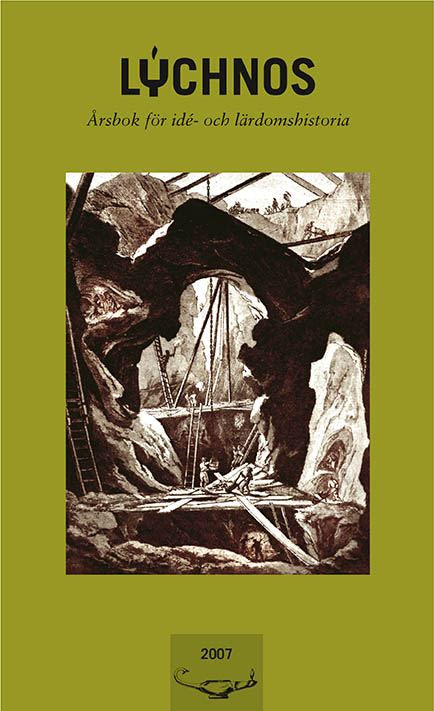Friedrich Schiller och estetisk fostran
Uppsala universitet
Abstract
This article aims to present some of the fundamental thoughts of Friedrich Schiller's Letters on the Aesthetic Education of Man. The context is on the one hand his own education, on the other the late 18th century conception of general education (Bildung) as morally important. Of special interest is the materialistic and rational outlook that dominated his training as a physician. This gave him a not always very sophisticated view of mankind. But at the same time it produced an important alternative to established views in religion and philosophy.
Around 1790 Schiller seriously began to study Kant's critical philosophy. On the basis of that and under the certain influence of his friend and colleague at the university of Jena, Johann Gottlieb Fichte, he began to formulate his theory of art and aesthetic education. In this he resurrected the classic concepts of matter and form, that had lost much of its importance. Fundamental to his theory was the idea that there exists a kind of intermediary force (Mittelkraft) between the spiritual aspects of life and the sensous. Thoughts about this had occupied him already in medical school. In the Letters on the Aesthetic Education of Man he tried to demonstrate the necessity of art in human life by pointing at two fundamental human impulses, a material or sensual one and a formal or spiritual one. A third impulse, the play impulse, constituted the intermediary force.
According to Kant art should be without a purpose. When Schiller put play in the center of man's moral education, he gave a very impressive example of how something purposeless could still be immensely serious. This gave classical conceptions of art's moral importance a new meaning in tune with the life sciences of the 18th century. Schiller did this by giving a new turn to Kant's thesis that the experience of a beautiful form is analogous to the experience of something morally good.
Downloads
Publicerad
Nummer
Sektion
Licens
This work is licensed under a Creative Commons Attribution 4.0 International License. The copyright for the work published in Lychnos remains with the authors.


